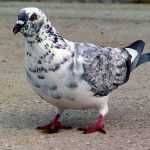In memory of Zhuge
Wisdom is the best treasure. It shines and never goes out. It seeks out those who are worthy of it and guides them to the joy of immortality.
Wisdom differs from intelligence in that the former is a quality acquired during life, while the latter is innate. Intelligence can also be put at the service of evil, which is not the case with wisdom.
Numerous thinkers have tried to define this notion of ethics in a synthetic way. Diderot says that " wisdom is nothing but the science of happiness’, and .EINSTEIN shows that it is not the product of schooling, but of trying for a lifetime to get it’.It is the fruit of toil and pain.
More and more thinkers have come to the conclusion that this category of ethics has two components:’ wisdom as a divine gift’and "wisdom as a life experience". The first, truly superior, is the wealth of our whole being, because it is given without any payment and without any effort that man cannot make. This gift is the result of seeking, conquering, and praying with sincere love to God. Wisdom is not given to anyone, but only to those who want to find it or want to receive it.
Among the writings with religious - moral value, a special place is occupied by The’ Book of Proverbs’ whose key word is’wisdom " or "the ability to live life wisely and skillfully".Proverbs provide a God's detailed guidance for those who belong to him to know how to successfully face the practical problems of everyday life, how to get along with parents, children, peers, how to respect authorities, and many other aspects of life.
Solomon uses a combination of poetry, such as parables, maxims, questions with meaning and short stories to put into a memorable form, common sense and the divine perspective necessary for life. He collected about 3,000 proverbs, with the source being the near and Middle East. They are the product of his wisdom, considering that he lived 500 years before the Seven Sages of Greece and 700 years before the time of Socrates, Plato or Aristotle.
It is said that old people have this quality acquired from experience gained over the years. That is why the expression remained valid:’he who has no elders shall buy them". In history it is remembered the "counsel of the elders" who had a particularly important role in the life of the community for decision-making. Proverbs and sayings, but also our folk tales carry in their content the meaning of wisdom.
We dedicate this article in memory of our pigeon Zhuge. He got this name because if we humans can learn tasks explicitly, because we can often describe the rules we used to learn the task, he taught tasks purely associatively. Mr. Zhuge gradually learned the correlation between stimulus (or response) and result, often bringing smiles to the faces of those who knew him.
Thank you for everything Zhuge and forgive us for being powerless!
